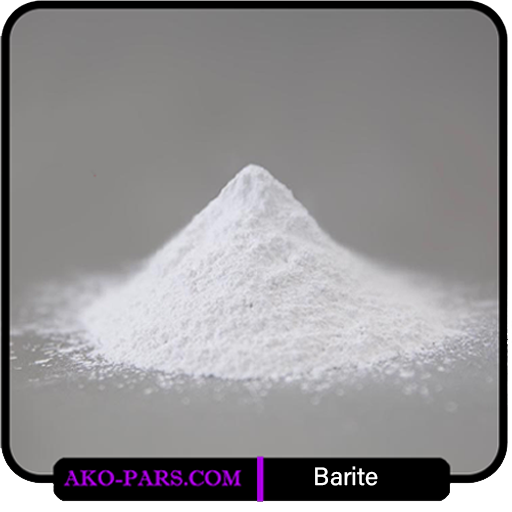
• High Specific Gravity:
Barite is among the heaviest non-metallic minerals, with a specific gravity of approximately 4.5.
• Color:
Typically white or colorless, though it can appear in various colors due to impurities.
• Hardness:
On the Mohs scale, barite has a hardness between 3 and 3.5.
1. Oil and Gas Industry:
• Drilling Mud: Barite is predominantly used as a weighting agent in drilling muds to increase their density, thereby preventing the influx of gases and fluids into the well.
2. Paint and Coatings Industry:
• Filler: In paints, coatings, and inks, barite serves as a filler that enhances weight, stability, and chemical resistance, while also helping to reduce production costs.
3. Glassmaking and Ceramics Industry:
• Special Glasses: Due to its thermal and chemical stability, barite is used in the manufacture of optical and specialty glasses.
• Ceramics: It is employed in the production of certain ceramics to improve thermal resistance and durability.
4. Medical Industry:
• Medical Imaging: Barite is used as a contrast agent in radiography. It improves the visibility of internal organs by enhancing X-ray imaging.
5. Plastics and Rubber Industry:
• Filler: In plastics and rubber, barite acts as a filler, increasing weight, wear resistance, and improving the mechanical properties of the products.
6. Paper Industry:
• Paper Quality: Barite is used as a filler in papermaking, enhancing the weight, whiteness, and smoothness of paper surfaces.
7. Electronics Industry:
• Electronic Components: Barite is used in the production of certain electronic components, including capacitors and resistors.
Barite’s unique properties, such as high specific gravity, chemical resistance, and thermal stability, make it a valuable material across multiple industries.